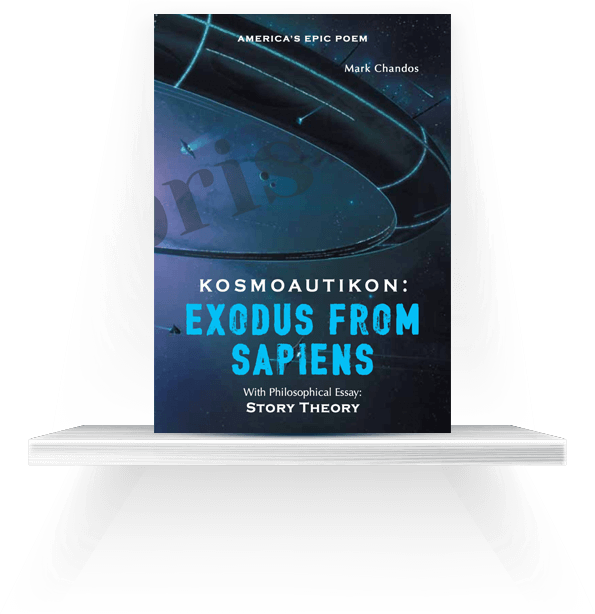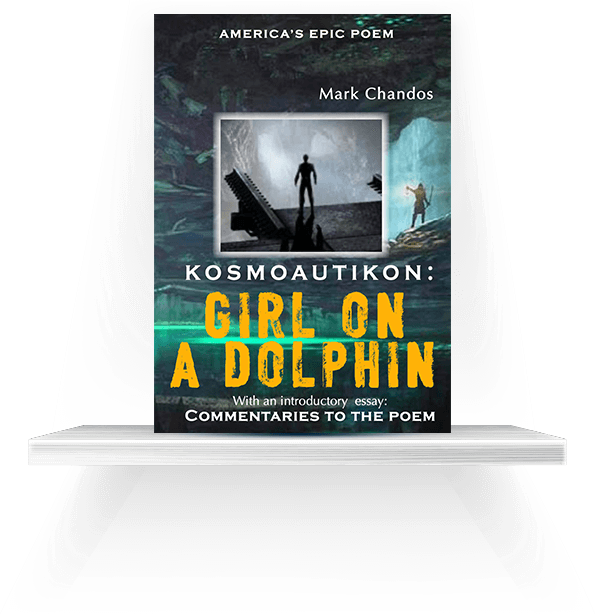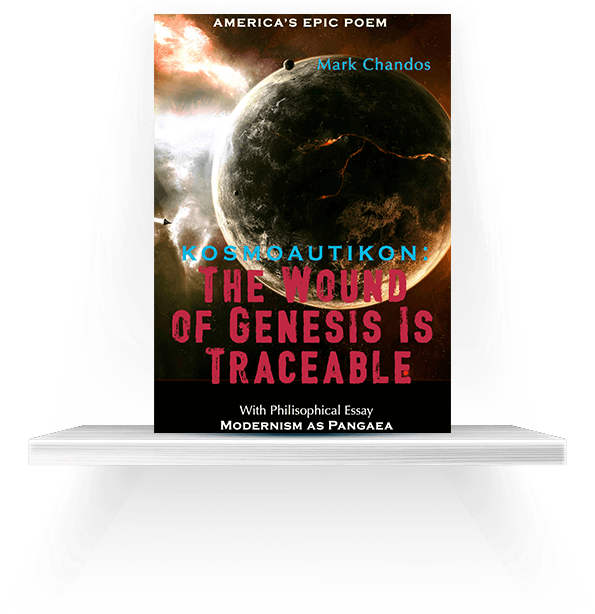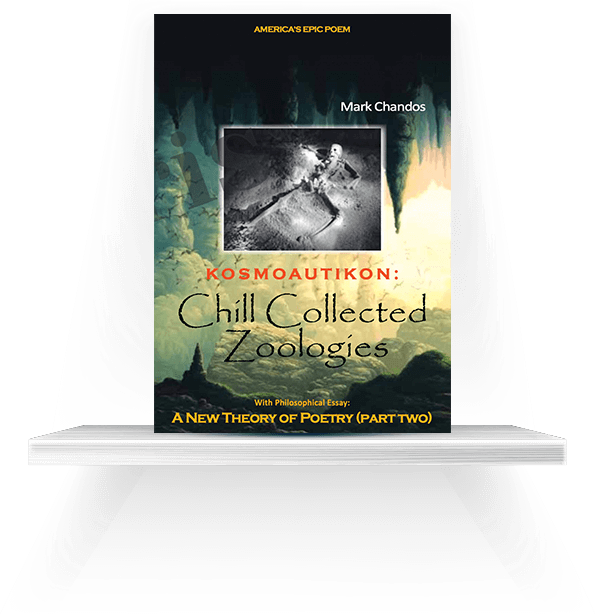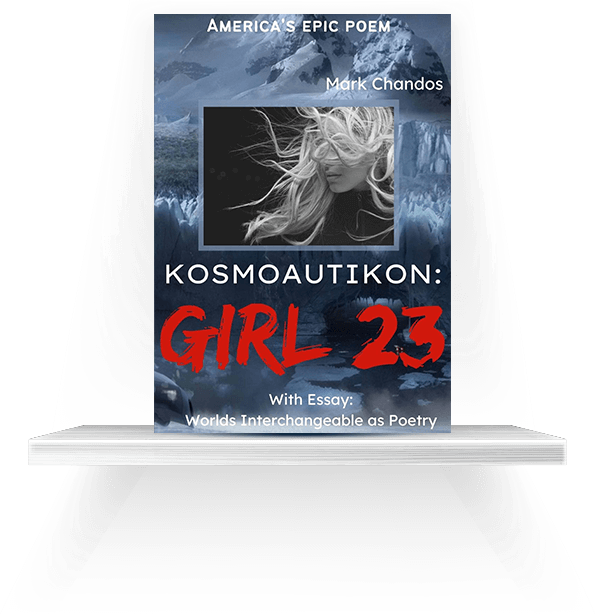Exploring The Pathology of Modernism & The Permanent Sting of Poetry

Exploring The Pathology of Modernism & The Permanent Sting of Poetry
This is the first epoch where Western poets are not vital agents of human society. This is the first age when the strongest minds chose not to become poets. So it is not a question of what is wrong with modern poets — that question is moot. There are none known to the entire nation. There are none that are vital to our national discourse. The question is this:
What is wrong with a Western society that does not miss the presence of a cadre of strong poets?
I will test what every poet must test. He must evaluate his age. I will test modernism for its benefit to human consciousness. Modernism (which we take for granted as the linguistic norm of Western societies) will be examined in differing angles of interrogation. Each chapter poses an eccentric interrogation of modernism. Why is this necessary? Since modernism is so pervasive in our speech, so integral to our mind mapping, it is difficult to objectively observe the critical elements of modernism. Thus, the reader will find that each chapter contains a seldom seen interview of modernist ideology. Until modernism is understood, it will be useless to make a new interpretation of human poetics. This perspective will seem strange only until it is understood.
Does poetry have any connection to war?
This is the first shock. It is as much to ask if poetry has any connection to good and evil. War is the only certain test of good and evil. Every soul must make a test of good and evil. Raw truth, absolute clarity, and a powerful concentration of identity will result—every time. Poetry is the speech left after human agon.
Modernism informs the citizen that all wars are over. That is a ruse exploited by liberal dialectics. That is a strategy allowing modernism to remain hegemonic. War always brings in new clarity, new information, and new speech. Any serious war might destroy the prestige by which modernism maintains its supremacy of information. In contradistinction, Story Theory, as revealed in these books, verifies that the human consciousness, as an entity, is at war. We can test this.
In Story Theory, all things in the case of human are the case of story. There is no human that is somehow excluded from the case of story. When a human attempts to account for his life—even in the first syllables—he transitions immediately to story. There never has existed an exception to this protocol. No philosophy has isolated this central thesis.
This philosophy of the human condition is called Story Theory.
We have identified the human singularity—as story. This being the case, how can we decide what is the nature of story? Where did it come from? It is an alien element? Why? Because we know it is alien to all other animals in nature. Only men make story. To understand the human, we have to understand story. This is the thesis.
Stories are very strange. They have only one DNA. Stories consist only of agon. Each story has a beginning, a middle, and an end—of agonistic struggles. Never does a human story have a beginning, a middle and end—of peace, contentment, and well-being. There is always a crisis to be resolved, and there is always a protagonist. There is no exception. This is information that can be used by the student of the human condition.
Every human story from the foundation of human existence has an invariable codex. There is a beginning crisis, there is a test of the human choice in crisis (never a clear choice), and there is a final clarity of crisis. The reader, as I, will never find a story with an alternate DNA. And thus we can detect that our DNA is at war—within consciousness.
Literature, thus, is a contest of good and evil for the human soul. Until there is agon, a struggle, a crisis, humans may eat, sleep, and reproduce as any animal in nature. Agon, then, is the active agency for the human—and it sets the human mind apart from nature.
As we discuss in the Kosmoautikon series, literature (and war) is a field of activity largely conducted by the rogue entity. The category of the rogue male includes megalomaniacs, saints, obsessives, fanatics, psychopaths, madmen, and killers—military and religious leaders—as well as poets of eccentric audacity. They have only one objective—a new clarity of speech—a new idiom of force and power—a new source of life. They are males seeking ruthless clarities. Is clarity of speech the Holy Grail of human civilizations? Yes, because clarity of speech will pass for agency of deity on any given day. Poetry is clarity of human speech. This is the case for human poetry.
Human consciousness, so far unknown or unexplainable to science, must be free to reach maturity of character, ethos, and idiom—with a ruthless competition of human entity.
We still don’t know the quantity of consciousness. Many attacks into chaos still must be made. America is still not mature in its voice. I am not content to agree that F. Scott Fitzgerald, Emily Dickenson, or a Walt Whitman are our greatest voices. The former famously insisted there are no second acts in American literature—attesting to the lack of a maturity of American voice. Why are there no second acts in American literature? Because there is no vision of maturity in modernism. Age is the only condition universally condemned in modern American society. In modernism, age is something to be fixed. Therefore, modernism does not understand age. We have identified the fatal defect of modernism—it cannot carry a mature idiom of the human. Anything but age is allowed with promiscuity in modernism. This touches poetry.
We cannot look to academics or modern celebrities to show us the way out from modernism. The only speech they replicate is modernist speech. Only the rogue male forces a development—a climatic confrontation that cannot be ignored. The rogue male forces the human mind to mature. The rogue male forces the issue—where a stand for good or evil cannot be avoided. A civilization cannot hide from the rogue male—whether he is Attila, Hitler, Stalin, Dante, Napoleon, Caesar, or the “Shakespeare poet.” Thus we are concerned to delineate the role for the rogue male in a new theory of poetry. His language is new. His sound stings the ears of his epoch. It is a permanent attack. No epoch can overcome or ignore the sting of its poet.
A claim is made in these books that every human mind must mature. A claim is made here that the human mind matures facing charismatic peril. Modernism no longer fights this agon—it insists that the citizen should avoid all perils and that the human should be protected (by technology or socialism) from any unpleasantness consequent to the human condition. This is the propaganda of socialist modernism. Instead, Story Theory insists that humans have the right of access to a war of good and evil. This will seem eccentric to the modern ear—until my thesis is made clear.
If, under Western socialism, the Western human cannot fully develop, cannot reach maturity through free access to a war of good and evil, then the modern will be supplanted by men who are allowed to reach maturity.
In any case, socialism only lasts so long as the wealth of a society lasts. Modern material socialism is a brief moment of wealth that quickly degenerates into totalitarianism—followed by collapse. Then, after the misery of the crisis of liberalism and socialism, there is a new speech of clarity.
How does this touch poetry—the subject of these books? If the modern human cannot mature—then he cannot produce mature poetry. My chief critique of modernist prose poetry, thus, is its irredeemable puerility. A man is righteous only two times in his life. The young man is righteous when he is untried with idealistic misprision. The second time a man is righteous when he has matured—after his war of good and evil. The epic trope requires maturity of perspective. I make a line in the sand.
Therefore, the first critique is outlined. To correct modern poetry, we must discover what is desperately fraudulent with modernism. In their hearts, all moderns know that there is something wrong with modern life and modern information. Under modernism, we cannot be righteous—we may only be modern. To many, it is enough to be modern. This is the choice of those who have surrendered—who are no longer free. We are face to face with the loss of the human path to righteousness—a pathological inability to fully develop mature expressions of mature minds.
Unless you are already educated as a modernist, you cannot cheer modernism.
The modern is confused—he can’t clearly say what modernism is. Aside from the usual technological conveniences (and harassments), you don’t know why you believe in modernism—just as you can’t explain why you speak the language you speak. And if you believe in modernism, your mind is replicative. That is, you can’t say exactly why you assent to modernist ideology—but you endlessly repeat clichés of modernism in your speech. You fully accept industrial medicine, genetic manipulation of nature, and unconstrained proliferation of industrial pharmaceuticals. Why? Because it is the only common sense language of the world you know. Yet this book poses a question…
Is it true that the only reality is a reality that is repeatable and replicable?
This will be challenged.
Western men are under the illusion that the modern liberal state cannot harm them, that there is no danger of liberalist ideology becoming totalitarian—that there is no harm if the state uses totalitarian technologies to conduct surveillance of its population. These myths are the beginning of crisis. We are all horribly aged by modernism.
Western technology has allowed modernist ideology to quietly slip into totalitarian control of society. The modern is allowed only to repeat modernisms in the public space (i.e., media, medicine, politics, film, poetry, publishing, and academia). If at any time the speaker steps outside of modernist linguistic ideology—he is placed under surveillance, excluded from the group, even medicated. It is now fearful to express any un-modern perspective. The end result is not a richer human diversity— there is only a horrifying sameness. Modernism now only designates total control of human life.
In Kosmoautikon the Replicants have largely replaced Homo sapiens— and no one notices the transformation. Only the sting of a poet’s speech remains.

